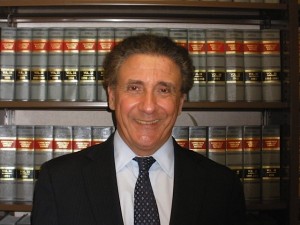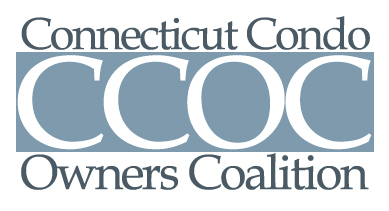Ask Atty. George: How Much Power Do Boards Of Directors Have In Setting Rules?
 RULES AFFECTING UNIT OWNER BEHAVIORS
RULES AFFECTING UNIT OWNER BEHAVIORS
Clients often ask whether their Condominium can adopt and enforce rules that affect how unit owners behave in the common elements and even in their own unit.
Section 47-244(a)(1) of the Connecticut Common Interest Ownership Act (CIOA) gives the Unit Owners Association the power to adopt and amend rules and regulations. And of course the Board of Directors can act on the Association’s behalf and adopt rules. CIOA explicitly authorizes rules that affect the use of residential units. However the law also imposes certain limitations on rules that affect the use of, or behavior in residential condominium units.
Specifically, CGS 47-261b(f) allows associations to adopt rules that affect the use of, or behavior in, units that may be used for residential purposes, only to:
1. Implement a provision of the Declaration;
2. Regulate any behavior in, or occupancy of, a unit which violates the Declaration or adversely affects the use and enjoyment of other units or the common elements by other unit owners; or
3. Restrict the leasing of residential units to the extent those rules are reasonably designed to meet underwriting requirements of institutional lenders that regularly make loans secured by first mortgages on units in common interest communities or regularly purchase those mortgages, provided no such restriction shall be enforceable unless notice is recorded on the land records of each town in which any part of the common interest community is located. This notice must be indexed by the town clerk in the grantor index of such land records in the name of the association.
Thus, unit owners must carefully examine the Declaration to determine whether and to what extent the Declaration regulates the behavior of unit owners in their own units. As noted above, even if the Declaration is silent with respect to regulating a certain behavior, CIOA gives associations the power to regulate behavior that “adversely affects the use and enjoyment of other units or the common elements by other unit owners. The burden is on the Association to demonstrate, and if challenged in court, to prove that the behavior that the rule regulates in fact adversely affects other unit owners.
The law also requires that each rule of the association must be reasonable (CGS 47-261b(h)). Thus even if the Association has the legal authority to regulate a certain type of behavior, the regulation must be reasonable.
How can a unit owner determine if a rule is “reasonable” and know if he or she should challenge it? One of my law professors used to tell a story that illustrates the problem. Three umpires are talking about their jobs one night. The subject of how they each call balls and strikes comes up. The first umpire says with conviction- “I call them the way I see them!” The second umpire says I can do you one better than that, “I call them the way they are!” The third umpire who is a little older and more philosophical than the first two then says, I know what you are each saying but “They aren’t anything until I call them.”
Until a court actually decides whether a particular rule is reasonable it is impossible to predict with 100% certainty whether a rule is actually “reasonable.” However it seems likely that rules that are rationally related to preventing harm to the safety, well being, or enjoyment of other unit owners has a better chance of being approved by a court.
For example, a court seems far more likely to uphold a cigarette smoking prohibition in units if the association can demonstrate that the smoke and or smell somehow gets into other units of common hallways. On the other hand the association might have a much more difficult case if it tried to ban unit owners from watching violent or sexually explicit material in their unit.
And don’t forget, if a Board adopts a rule you do not approve of, and you can’t get the Board to change its mind, you can always take advantage of your democratic rights as a unit owner to try to get enough support from other unit owners to call a special meeting of the Association of Unit Owners to get the rule repealed or amended, or to remove some or all board members and to replace them with new members who share your view on the rule.
Attorney George Coppolo of Hartford is a member of the Connecticut Condo Owners Coalition’s board of advisers.






A follow-up might be in order now to explain what a Board has to do to change or adopt a Rule!
‘Tain’t s simple process!
eeg
Actually it’s pretty simple unless the rule is in the declaration. Boards can establish bylaw changes easily.
Can an association or just the executive manager tell unit owners that they can’t put storage in their unit garage. That is storage that is not dangerous like old newspapers or magazines. It is clear gasoline and flammable items would be dangerous and owner would not be able to store those. But, are other items that are safe storable and beyond the jurisdiction of management? If the management demands no storage is it within their rights? What action can a unit owner take in case of this pressure from management?
Thank you for your awaited reply!
Garages are basically for the storage of vehicles. Newspapers and magazines are flammable under certain circumstances. Garages become very hot in the summertime and could technically cause combustion of stored materials. Vermin (including raccoons) nest in garages and newspapers and magazines supply them with some nesting materials. Furniture and appliances also provide vermin with not only a nesting place but also materials for their nests and can be flammable with just one spark. Do folks ever stop to think that they pay more for a condo unit with a garage and instead of using it for their vehicles, they often use it for everything but. Go figure.
It is clear in the statute that the “association” can adopt and modify rules (47-244(a)(1). But you said in the article, “And of course the Board of Directors can act on the Association’s behalf and adopt rules.”
Did you mean to add “if given the authority in the bylaws.”? Doesn’t it becomes cumbersome if both the BOD and the unit owners have the right to adopt rules?
Please clarify.
My condo board would like a key to all units incase of an emergency, Now when I purchased my unit the board already had a set of keys. I sent an email to the president of the board asking where’s my old keys they already have? The president took a month to respond back to me,Then quickly dismissed my question. His response was they were disposed of. When pressed how or why? I never got a response back. Now the board put my name in the minutes from last meeting stating that I haven’t complied with my keys? Is it Not my right as an owner to know what happened to my org. Keys? Before giving out new ones? My rights on this.
Thank you,
Joe.B
you are right, but it is a losing battle. Have your lock re-keyed and give them the new key.
Joe – You have a right to privacy as a unit owner and I don’t believe the association has a right to have keys to your unit. I would argue that they need to define “emergency” so that unneccessary and indiscriminate access to your property is not obtained. This sounds like a clear abuse of power; as an owner, I would challenge this and have them take you to court if necessary.
Can a board impose fines of $50 a week if home maintenance is not done by the time specified by the board? Our bylaws state that the owner must replace defective windows. Some of our windows have failed and the board has given us 6 months to replace them or we will be fined $50 a week for every week that they are not done. I think that is an unreasonable amount and it poses a hardship on many owners.
they can
Connie – Although 6 months is a reasonable amount of time to replace a window, I can see where it would cause hardship given the rising costs for utilities and how wages aren’t keeping up with inflation. I would ask the Board to clarify what “defective” means and whether they are imposing an arbitrary rule just because the windows are old and somebody doesn’t like them. Replacement parts for windows are available online and are cheaper than replacing the whole window. $50 a week is a harsh punishment to what effect? Sounds like an empty threat. I would tell them “Good luck collecting – see you in court.”
Can condo fee be increase by 75% a month without even a meeting being called to be determined by vote
of unit owners. Thanks for a response.
I have a question. Can you email me the proceedures that must be followed by Ct. law in regards to election that are held by condo asociations and managment copanies.